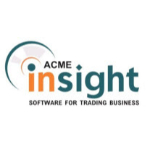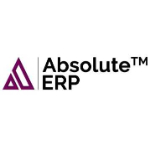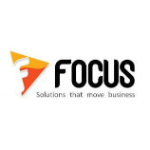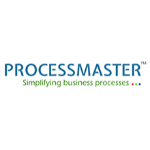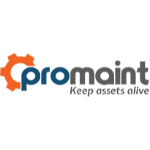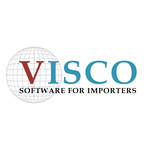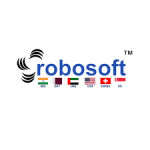List of Best Chemical Software
Showing 10 of 22 productsAcme Insight is a software designed to streamline and simplify business operations. With its powerful features and user-friendly interface, Acme Insight revolutionizes the way businesses manage their processes, saving time, effort, and resources. Sta...Read Acme Insight Reviews
Absolute ERP, your ultimate solution for streamlining all your business processes. This powerful software helps you manage and integrate every aspect of your organization, from accounting and inventory to sales and customer management. Say goodbye to...Read Absolute ERP Reviews
FocusX is a software designed to boost your productivity and supercharge your focus. Say goodbye to distractions and hello to laser-sharp concentration with this innovative tool. With its user-friendly interface and powerful features, FocusX is a sol...Read FocusX Reviews
Infor M3 is an innovative business management software solution designed to streamline operations, increase efficiency, and drive growth for modern organizations. With its user-friendly interface capabilities, Infor M3 empowers companies to achieve t...Read Infor M3 Reviews
PROCESSMASTER is a solution for all your business needs. This advanced ERP system is designed to streamline your processes, increase efficiency and drive growth. With its user-friendly interface and powerful features, PROCESSMASTER is the perfect too...Read PROCESSMASTER ERP Reviews
The PROMAINT EAM CMMS is a software designed to streamline and optimize maintenance and asset management processes for businesses of all sizes. With its user-friendly interface functionality, PROMAINT EAM CMMS is the perfect solution for organization...Read PROMAINT EAM CMMS Reviews
Essence Manager is a software designed to streamline business operations and enhance productivity. This innovative tool offers a user-friendly interface to manage tasks, track inventory, and monitor sales. With its robust features and easy integratio...Read Essence Manager Reviews
VISCOchem, the ultimate chemical software for enhancing your business operations. Developed with advanced technology and innovative features, this software is designed to cater to the specific needs of chemical companies. Upgrade your business with V...Read VISCOchem Reviews
Yordas Hive is a software that streamlines and simplifies your business management processes. With Yordas Hive, say goodbye to manual tasks and hello to efficiency and productivity. This innovative platform revolutionizes the way you handle your busi...Read Yordas Hive Reviews
Robo-commodity, a revolutionary software designed to simplify and enhance commodity trading. With its advanced algorithms and user-friendly features, Robo-commodity streamlines the trading process, making it more efficient and profitable for users. S...Read Robo-commodity Reviews
- What Is Chemical Industry Software?
- Top Reasons Why Businesses Need Chemical Industry Software?
- What Are the Top Key Features of Chemical Industry Software?
- What Are the Top Benefits of Chemical Industry Software?
- What Are the Steps to Choose the Right Chemical Industry Software?
- What Are the Types of Chemical Industry Software for Different Industries?
- What Are the Technology Trends for Best Chemical Industry Software?
- What Are the Deployment Options for Chemical Industry Software?
What Is Chemical Industry Software?
Chemical industry software refers to a category of software specifically developed to optimize and enhance the efficiency of various procedures and activities associated with the fabrication and manufacturing of chemical-derived goods.
The software for chemical industry encompasses various modules that cater to different aspects of the production process, such as scheduling, formulation, inventory control, warehousing, and distribution. The utilization of this software facilitates the preparedness of businesses operating within the chemical industry to effectively mitigate future market disruptions and effectively minimize overall operational expenditures.
The utilization of best chemical software enables the identification of the most economically advantageous inventory and production strategies, hence facilitating the optimization of production processes and the enhancement of operational efficiency.
Additionally, chemical management system technology can be employed to monitor both the quality and quantity of raw materials utilized, while also conducting inspections on arriving items to identify any potential instances of contamination. This program facilitates the monitoring of adherence to governmental legislation and industry standards.
Moreover, Chemical software program possesses the capability to enhance customer service and establish an efficient supply chain system. Additionally, the software has the capability to generate comprehensive reports that enable the tracking and comparison of performance throughout different years.
Customers can utilize this tool to generate and administer comprehensive customer profiles, as well as monitor client needs and comments.
In general, chemical industry software serves as a highly effective and economically viable solution for enterprises operating within the chemical sector, enabling them to effectively oversee and control their manufacturing processes and overall business activities.
The implementation of this strategy has been found to result in cost reduction, production optimization, and enhanced customer service.
Top Reasons Why Businesses Need Chemical Industry Software?
1. One benefit of this practice is its ability to enhance the precision of data collection.
2. The use of this strategy enhances operational efficiency by improving the effectiveness of processes and procedures.
3. The chemical management system offers the capability to track and trace in real-time.
4. One benefit is the potential reduction in operational costs, leading to an increase in earnings.
5. The chemical management system offers capabilities for controlling and managing inventory.
6. Chemical software facilitates adherence to ever-growing governmental rules.
7. The chemical management system offers capabilities for the prediction and control of chemical inventory.
8. The Chemical software provides assistance for the creation and simulation of processes.
9. Automating quality control activities is beneficial in enhancing operational efficiency.
10. It facilitates the construction of intricate compositions.
11. Chemical software is beneficial to maintain awareness of expiration dates and chemical labels.
12. The technology facilitates the remote monitoring of vegetation and containers.
13. The utilization of the best chemical software facilitates the enhancement of scheduling and production planning processes.
14. The utilization of this technology facilitates improved collaboration and communication.
15. The aforementioned measure aids in the promotion of environmental preservation and the maintenance of safety standards.
What Are the Top Key Features of Chemical Industry Software?
1. Automation of Processes: Chemical industry software facilitates workflow automation through the optimization of manual procedures, thereby enabling producers to enhance operational efficiency and mitigate the occurrence of errors.
2. Inventory Management: Chemical inventory management software offers customers the capability to monitor and manage various inventory levels, enabling them to promptly detect instances of insufficient stock and facilitate the placement of replenishment orders.
3. Quality Control: Quality control plays a crucial role within the industrial and chemical sectors. chemical management system enables users to effectively guarantee that all facets of production align with safety standards, conform to regulatory requirements, and comply with company rules.
4. Supply Chain Management: Chemical industry software facilitates the effective management of supply chain management, material tracking, vendor identification, and spending data analysis.
5. Reporting and Analytics: Software for the chemical industry offers customers robust analytical and reporting functionalities, enabling them to efficiently generate comprehensive data reports.
6. Tracking and Traceability: A chemical management system enables users to efficiently monitor and manage many aspects of production, shipment, and resource allocation across the supply chain.
7. Production Scheduling: Chemical software offers customers the capability to generate, oversee, and enhance schedules for several process stages, including production, quality control, and shipment.
8. Regulatory Compliance: Chemical industry software assists customers in ensuring adherence to pertinent regulations, hence enabling the optimization of the certification process and expediting approval procedures.
What Are the Top Benefits of Chemical Industry Software?
1. Improved Efficiency: The utilization of chemical industry software facilitates the automation and optimization of the manufacturing process, hence enhancing operational efficiency and diminishing the expenditure of time and labor associated with production.
2. Cost Reduction: The cost of chemical production can be substantial; however, the utilization of chemical management software can mitigate these expenses by enabling automation and process optimization.
3. Reduced Compliance Risk: The utilization of software has the potential to augment the safety and adherence to regulations within the production process, hence mitigating the hazards linked to chemical manufacturing.
4. Improved Quality Control: Automated processes and software tools are implemented to enforce adherence to established standards within the production process, thereby mitigating the occurrence of faults and ensuring the overall quality of the output.
5. Improved Workflow Management: Chemical software has the potential to effectively regulate production conditions and streamline workflow, hence facilitating the management of various stages involved in the manufacturing process.
6. Increased Productivity: The implementation of automated processes and software tools has the potential to enhance production efficiency through the reduction of time and labor required for production activities.
7. Increased Visibility: The utilization of software in the chemical industry enhances the level of transparency within the production process, hence facilitating the acquisition of significant data and insights that contribute to the formulation of more informed and effective decisions.
8. Data Tracking and Analysis: Software applications have the capability to monitor and evaluate significant data pertaining to the production process, hence facilitating process enhancement and increased efficiency.
What Are the Steps to Choose the Right Chemical Industry Software?
1. Identify Your Business Needs: Create a comprehensive inventory of critical company elements, such as customer service and inventory management, that are crucial for optimal business operations.
2. Research Software Options: Conduct a comprehensive analysis of reviews in order to refine and streamline a selection of appropriate solutions for your organization. Conduct surveys among fellow professionals in the chemical business and assess consumer ratings.
3. Compare Solutions: This study aims to compare and analyze different features and pricing points of various products or services. When evaluating a system, it is important to take into account many criteria such as the level of user-friendliness and the degree of compatibility with pre-existing systems.
4. Schedule a Demo: Request a demonstration and a trial term from the program provider. Assess the user interface and technical support services, and ascertain the components encompassed within the software.
5. Make Your Decision: In order to determine the most suitable software for the chemical industry for your company's requirements, the best chemical software is important to assess and compare several systems. Determine the return on investment (ROI) and ascertain the necessary hardware and storage prerequisites.
6. Implement the Chosen Solution: Establish the chemical management software by procuring the requisite hardware components, allocating sufficient storage capacity, and conducting comprehensive testing procedures.
It is imperative to provide comprehensive training to both employees and suppliers in order to ensure proficient utilization of the system. It is imperative to ensure the seamless integration of the new system with the existing infrastructure.
What Are the Types of Chemical Industry Software for Different Industries?
A diverse range of chemical industry software solutions cater to various sectors within the business.
1. Data capture and optimization solutions: This particular program facilitates the acquisition and examination of data pertaining to the quality and performance of manufacturing within firms.
The utilization of this technology facilitates the optimization of many operations, leading to enhanced production, heightened efficiency, and decreased operational expenses.
2. Regulatory compliance software: Chemical software is obligated to adhere to regulatory requirements and fulfill safety protocols. Software solutions play a crucial role in facilitating compliance with relevant rules and regulations by providing the essential data required for adherence.
3. Supply chain management software: This program facilitates the efficient coordination and control of the flow of materials, products, and services within the supply chain. The implementation of this approach facilitates the optimization of operational procedures, enhances productivity, and enhances the quality of customer support.
4. Laboratory information management system (LIMS): The aforementioned software facilitates the storage and retrieval of data relevant to the examination of various materials and samples within laboratory settings. Lab management facilitates researchers and scientists in the seamless execution of their study and laboratory studies.
5. Process simulation and modeling software: The utilization of this software facilitates the design and enhancement of chemical production processes by engineers and scientists. It enhances the operational efficiency of simulated chemical facilities.
6. Quality control software: This program facilitates the preservation of optimal quality standards for chemicals and components manufactured by an organization. The system oversees and assesses the manufacturing procedures and materials to identify any instances of faults or nonconformances.
7. Risk management software: It is imperative for corporations to systematically identify, thoroughly examine, and effectively manage the risks that are inherently linked with chemical production processes.
Risk management software offers a comprehensive set of tools that enable users to enhance their understanding of the entire production process and promptly detect and mitigate any risks.
What Are the Technology Trends for Best Chemical Industry Software?
Contemporary chemical industry software solutions ought to possess the capability to effectively manage the intricacies inherent to the specific business domain.
Chemical management systems should incorporate robust asset management functionalities to effectively handle substantial volumes of assets, extensive data analytics capabilities to get insights into client behavior, and comprehensive security measures.
Furthermore, Software for chemical industry makes optimal use of contemporary technological advancements in order to remain competitive. These trends encompass
1. Cloud-Based Solutions: Software for chemical industry technologies facilitates convenient implementation, updates, expansion, and creativity, and can be accessible in real-time from any location with internet connectivity.
2. Automation: The implementation of automation in diverse chemical processes and maintenance activities facilitates enhanced data collection and analysis capabilities, while concurrently mitigating inefficiencies and their corresponding costs.
3. Artificial-Intelligence (AI): Artificial intelligence (AI) powered solutions provide organizations with the ability to gather and analyze extensive quantities of data, enabling them to make well-informed decisions by leveraging contextualized information and identifying patterns.
4. The Internet of Things (IoT): Internet of Things (IoT) solutions have the capability to gather and oversee data from various systems, facilitating enhanced monitoring of performance efficiency and preemptive maintenance measures.
5. Mobility: Mobile solutions enable rapid and precise data acquisition, as well as the capability to retrieve resources from any geographical point. It is crucial to take into account these developments while making a decision on the most suitable chemical industry software solutions for one's firm.
Chemical management software provides a competitive advantage by allowing users to maintain a leading position in the market and make well-informed decisions in real-time.
What Are the Deployment Options for Chemical Industry Software?
The available deployment options for chemical management software include the following.
1. On-Premise Deployment: The prevalent deployment approach for Chemical Industry Software is hosting the software directly on the servers owned by the customer.
2. Cloud Deployment: This deployment approach involves the hosting of the software on cloud-based or virtualized infrastructure. The solution is both cost-effective and scalable, offering consumers the ability to access the software remotely from any location.
3. Hybrid Deployment: This deployment strategy integrates both on-premise and cloud deployment approaches. The integration of both methodologies enables clients to harness the benefits offered by each, so offering a synergistic approach that combines the strengths of both.
4. Mobile Deployment: The deployment strategy described above is a contemporary approach that is gaining traction within the best chemical software domain. The implementation strategy of enabling clients to utilize the software across various mobile devices facilitates a workforce that is characterized by enhanced agility and mobility.
